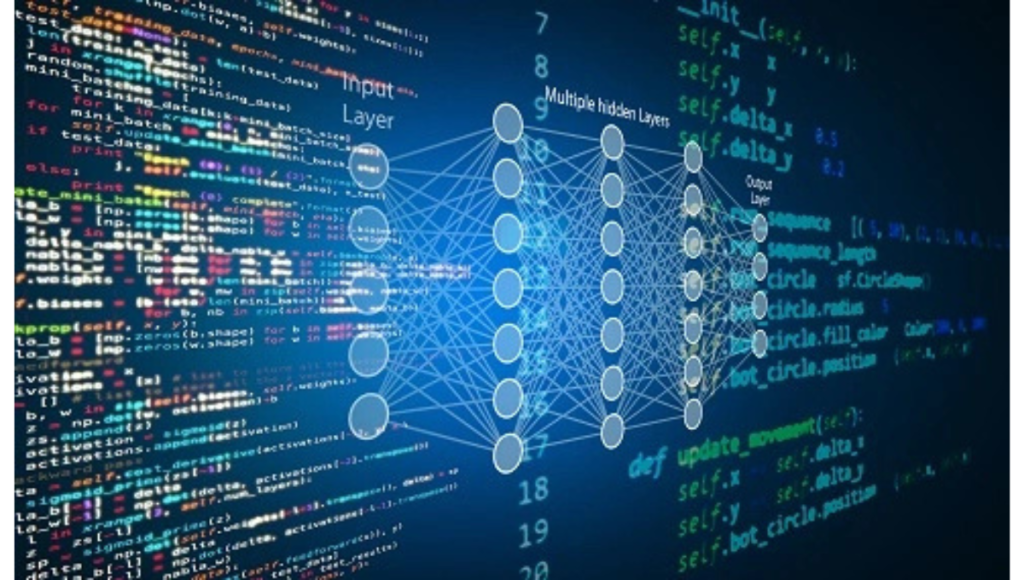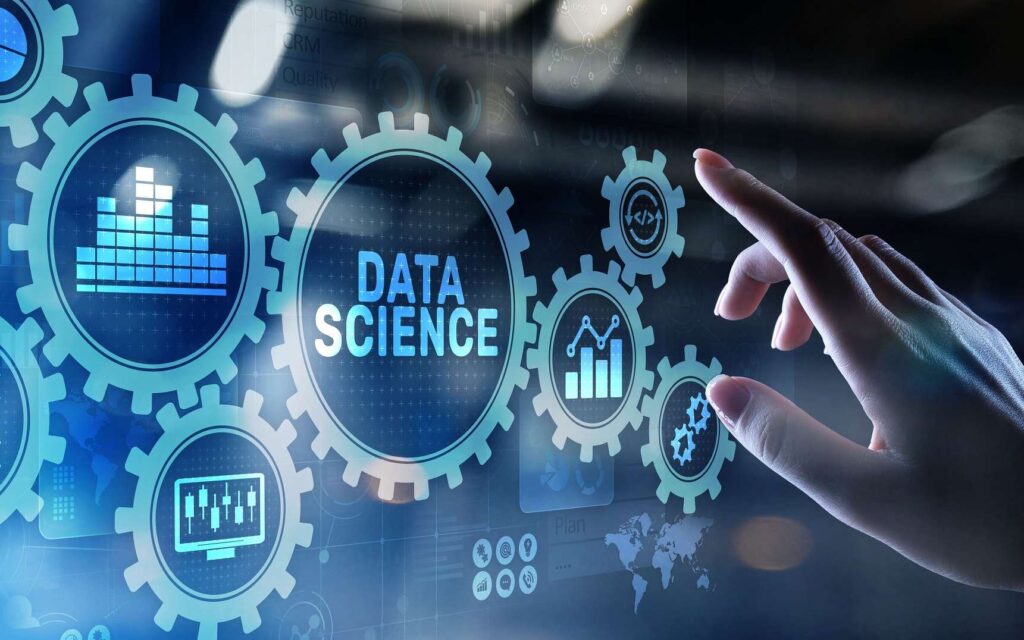In current years, information technological know-how has unexpectedly emerged as a notably sought-after area, blending facts, arithmetic, and laptop technological know-how to free up insights from facts. Yet a key question for aspiring facts scientists remains: Does facts technological know-how require coding? The short answer is yes, but there’s greater to the story. The quantity to which coding is vital and the kind of coding skills required may additionally differ primarily based on the position, equipment, and particular responsibilities in information technology.
In this weblog, we’ll explore why coding is vital in statistics technology, talk the style of equipment to be had, and look at alternative competencies which might be similarly crucial in a data scientist’s toolkit.
Why Does Data Science Require Coding?

Data technology includes a multi-step method for reading, visualizing, and extracting insights from information, and coding is an crucial part of these methods. Here’s why coding is important in information technological know-how:
1. Data Manipulation and Cleaning
- Raw information is often messy, incomplete, and unstructured. Data scientists need to “smooth” this data by means of handling lacking values, disposing of duplicates, standardizing codecs, and greater. Coding permits for these manipulations with precision and pace.
- Libraries in languages like Python (e.G., Pandas, NumPy) and R are built to streamline this system, making information guidance faster and greater efficient. Without coding competencies, a facts scientist’s capability to smooth and manage information might be confined.
2. Data Analysis and Exploration
- Data analysis includes summarizing datasets, generating descriptive information, and identifying developments. Coding enables facts scientists to perform those operations correctly.
- Python and R provide effective libraries like Matplotlib, Seaborn, and ggplot2 for information visualization, at the same time as SQL (Structured Query Language) lets in for querying statistics from databases.
- Coding empowers information scientists to explore and apprehend records beyond the bounds of factor-and-click tools.
three. Statistical Analysis and Machine Learning
- Machine getting to know algorithms drive predictive analysis in facts science, but they require coding to put in force and test models. From linear regression to neural networks, nearly every set of rules desires some level of coding.
- Languages like Python and R come with comprehensive libraries (like Scikit-Learn, TensorFlow, and caret) that make it less complicated for statistics scientists to build, train, and validate system gaining knowledge of models.
four. Automation and Scalability
- Many facts technological know-how tasks, like facts cleansing or model training, are repetitive. Coding lets in facts scientists to automate these responsibilities, saving time and ensuring consistency.
- Coding is also crucial for deploying system mastering models to manufacturing environments, where scalability and efficiency are vital.
Which Coding Languages Are Important in Data Science?

While coding is necessary, facts scientists don’t need to learn each programming language. Here are the top languages utilized in information technology:
1. Python
- Python is the most popular language in facts science because of its simplicity, readability, and tremendous libraries. From facts manipulation (Pandas, NumPy) to gadget gaining knowledge of (Scikit-Learn, TensorFlow), Python is versatile and newbie-pleasant.
2. R
- Known for its energy in statistical evaluation and visualization, R is some other favourite among statistics scientists. Packages like ggplot2, dplyr, and caret make it a effective language for information analysis, specially in educational and research environments.
three. SQL
- SQL is important for facts scientists running with massive datasets saved in databases. It’s critical for querying, retrieving, and aggregating facts from databases, making it a essential ability for information get admission to.
four. SAS and MATLAB
- While much less common than Python or R, SAS and MATLAB are still extensively used in positive industries like healthcare and engineering for statistical evaluation and statistics visualization.
Can You Succeed in Data Science Without Coding?
The brief solution is that it relies upon at the function. Data technology is a extensive discipline encompassing multiple positions, from data analysts and commercial enterprise analysts to system learning engineers and research scientists.
- Data Analysts and Business Analysts
- These roles focus extra on facts interpretation and visualization in preference to growing complex fashions, and they’ll require less coding. Some analysts rely upon tools like Tableau, Power BI, or Google Data Studio for visualizations and SQL for database queries.
- Machine Learning Engineers and Data Scientists
- These roles involve heavy coding. Machine getting to know engineers ought to know coding languages to build and optimize complicated fashions, and information scientists need coding abilties to address records processing, visualization, and modeling.
- Citizen Data Scientists and Low-Code Tools
- Low-code and no-code systems like DataRobot, Alteryx, and KNIME permit the ones without advanced coding abilties to carry out records technological know-how tasks. These structures use drag-and-drop interfaces to streamline duties like statistics cleansing, visualization, or even fundamental device learning.
While tools like those are treasured, they come with obstacles. Advanced facts technology tasks, complex algorithms, and version customizations normally require deeper coding abilities than what these structures can provide.
How to Learn Coding for Data Science
For those new to coding, there are numerous gaining knowledge of paths available. Here’s how you can get started:
1. Begin with Python
- Python is generally less difficult to examine for novices and is fantastically applicable to information technology. Start with primary syntax and work up to greater complicated subjects like records manipulation and gadget getting to know.
2. Learn SQL Basics
- SQL is vital for all of us who wants to paintings with databases. Begin with simple queries, and as you gain self assurance, flow into greater complex subjects like joins, subqueries, and aggregation.
three. Explore Data Science Libraries
- Once you recognize the basics of a language, begin exploring libraries like Pandas, NumPy, and Matplotlib in Python or dplyr and ggplot2 in R. These libraries are crucial for information manipulation and visualization.
4. Practice with Real Datasets
- Use publicly available datasets (e.G., from Kaggle or UCI Machine Learning Repository) to practice coding in real-global situations. This arms-on method will help you apply coding to clear up realistic troubles.
The Importance of Non-Coding Skills in Data Science
Coding by myself doesn’t make a facts scientist. Here are other critical capabilities needed to reach statistics technology:
1. Statistical and Mathematical Knowledge
- Understanding records, linear algebra, and calculus is vital for interpreting data and building machine getting to know models. These capabilities permit you to make feel of the effects and make certain your findings are accurate.
2. Data Visualization
- The ability to talk facts insights thru visualizations is critical. A precise statistics scientist can gift findings in ways which can be easy for non-technical stakeholders to apprehend.
3. Domain Knowledge
- Understanding the enterprise you’re running in (e.G., finance, healthcare, retail) is critical for decoding statistics within the correct context.
four. Communication and Storytelling
- Data scientists should translate complicated records insights into actionable guidelines. Good communication competencies are necessary to convey findings to stakeholders who might not have technical information.
5. Problem-Solving
- Data technological know-how involves tackling ambiguous and complex demanding situations. Strong trouble-fixing capabilities are important for identifying styles, checking out hypotheses, and growing solutions.
Final Thoughts: Does Data Science Require Coding?
In conclusion, does facts science require coding? Yes, coding is a essential ability in information science that permits specialists to manipulate statistics, carry out analyses, build models, and install answers. While there are a few roles and equipment which can allow for constrained coding, a robust information of coding languages is important for individuals who need to excel within the discipline. Coding opens doorways to deeper insights, scalability, and advanced analytics that could be hard to acquire otherwise.
For every person interested in statistics technological know-how, learning to code is an investment that will pay off in versatility, productivity, and profession possibilities.

